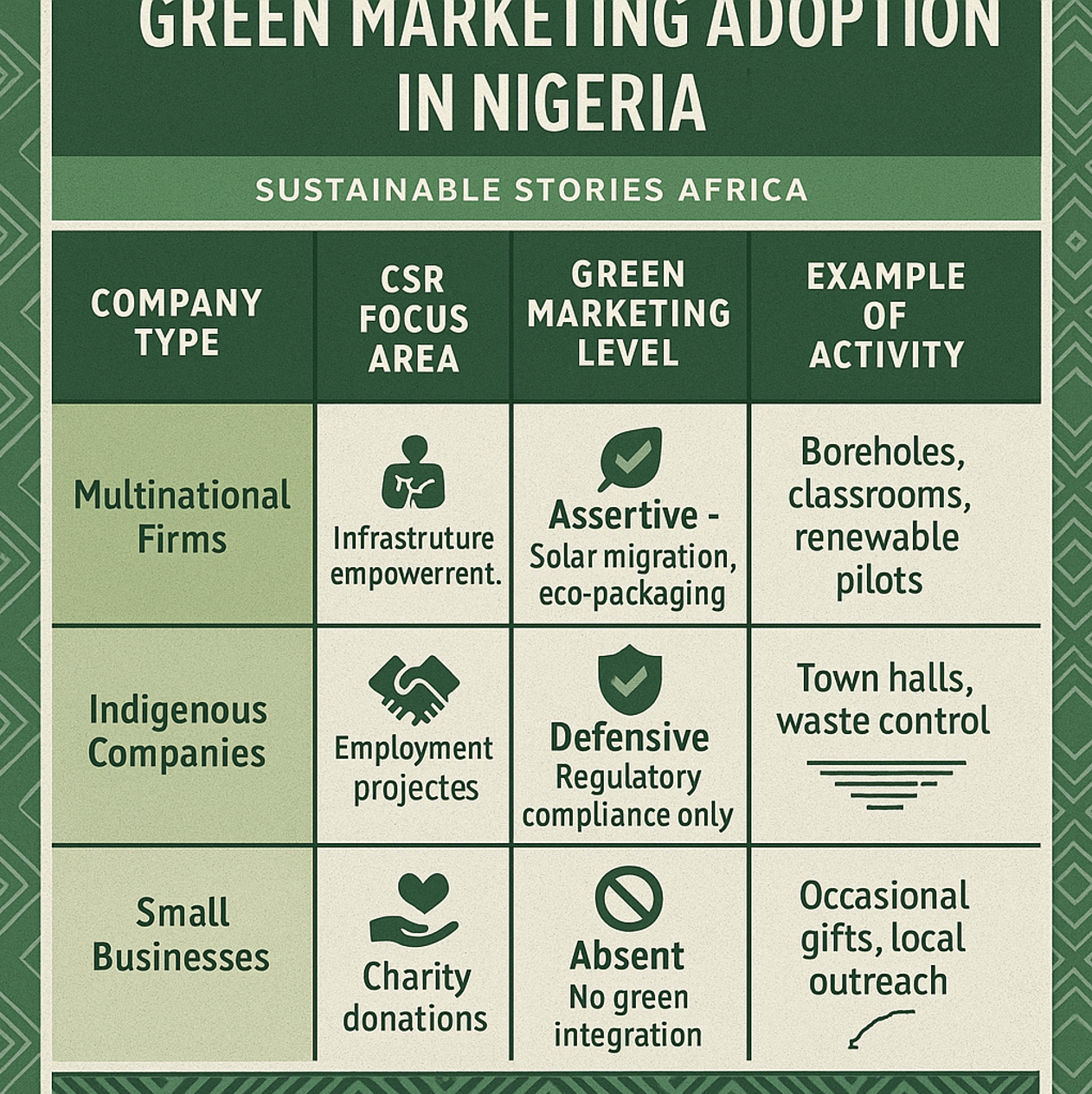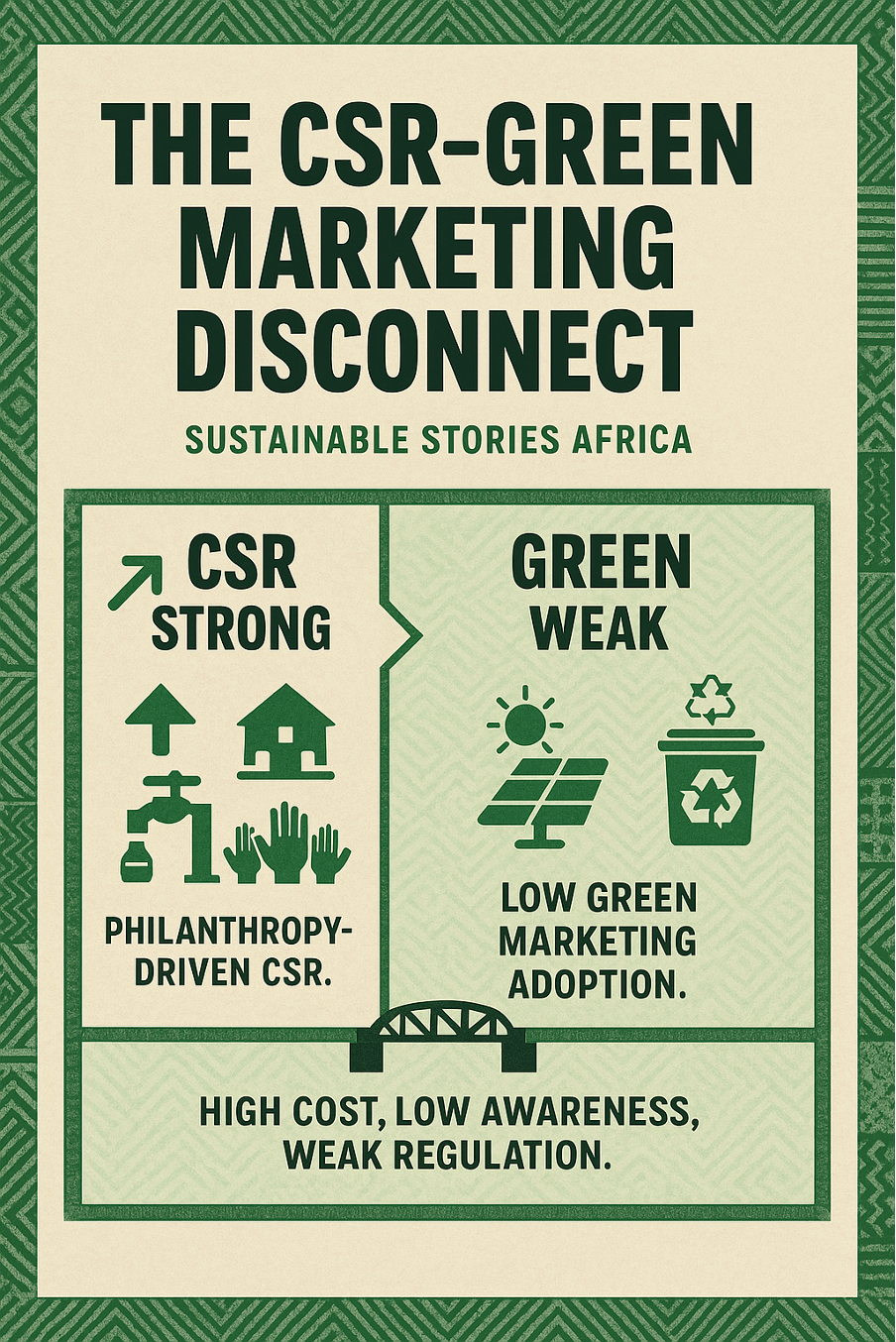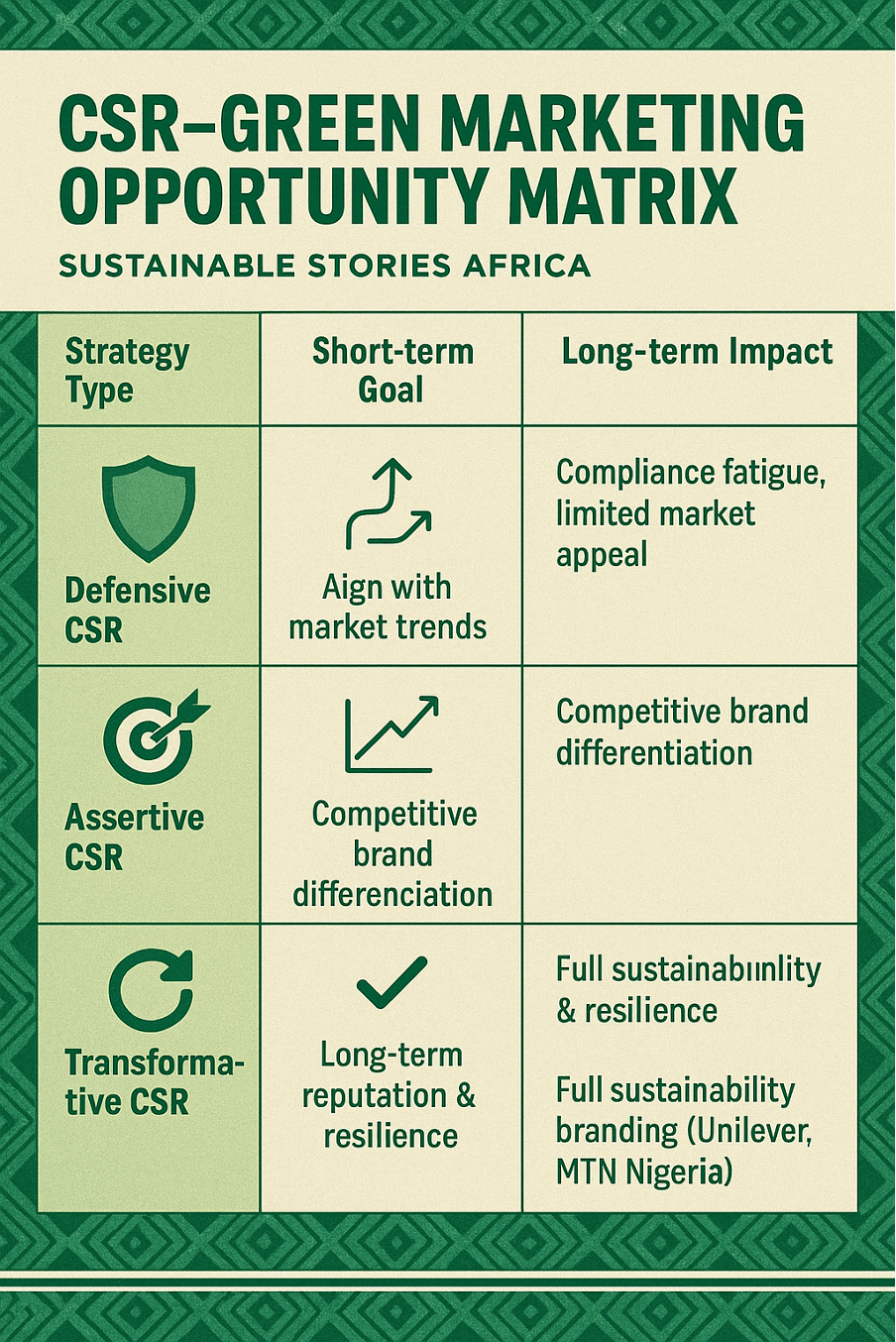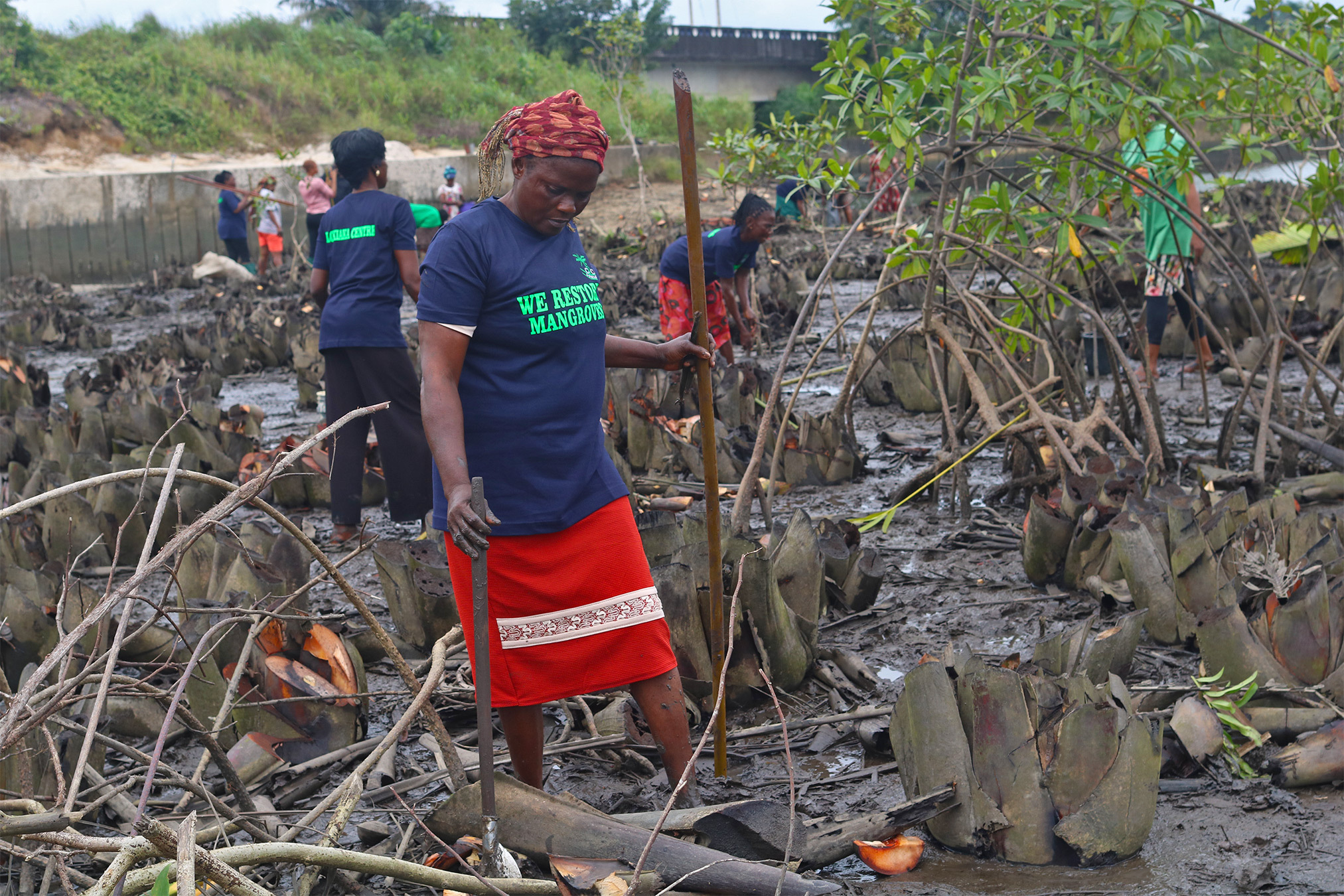Nigeria's path to green marketing is paved with contradictions. While global brands tout carbon-free commitments, local businesses struggle with electricity bills.
A new study on CSR and Green Marketing Adoption in Nigeria reveals a duality: companies embrace social responsibility as a moral duty but lack the infrastructure, funding, and consumer demand to make green business truly sustainable.
CSR Meets Climate in Unequal Economies
Corporate social responsibility (CSR) has become the moral currency of modern business.
Across Nigeria, firms now donate boreholes, sponsor youth programs, and build classrooms, echoing global sustainability rhetoric. But a closer look reveals an uneven picture: while CSR thrives as philanthropy, green marketing, the environmental wing of responsible business, remains largely aspirational.
A 2023 academic review from Ebonyi State University argues that Nigeria's CSR is "localised" to reflect socio-cultural needs, such as community welfare over carbon footprints, survival over sustainability.
The study finds that green marketing adoption is rare, costly, and often misunderstood. For small firms, the concept is "a luxury"; for multinationals, it's a branding necessity.
The divide speaks to a larger truth: sustainability cannot be imported wholesale; it must be translated into a local context.
When CSR Gives, But Earth Suffers
In Nigeria, CSR and green marketing live in separate worlds. While firms spend millions on community projects, few integrate environmental sustainability into their operations.
The CSR-Green Marketing Study (2023) finds that multinationals lead CSR through visible philanthropy, while indigenous and small firms interpret responsibility as charity, not environmental stewardship.
At the same time, environmental degradation, from oil spills to plastic pollution, grows unchecked. Green marketing, which globally aligns branding with ecological action, remains nascent in Nigeria due to high implementation costs, weak policy incentives, and low public awareness.
"We're still small but growing. We currently do not have the capacity to embark on green marketing," said one respondent from a small business in Abakaliki.
The data suggests a dangerous paradox: as global ESG expectations rise, Nigerian firms risk being left behind not for lack of goodwill, but for lack of green infrastructure.
CSR Practice and Green Marketing Adoption in Nigeria
| Company Type | CSR Focus Area | Green Marketing Level | Example of Activity |
|---|---|---|---|
| Multinational Firms | Infrastructure, empowerment | Assertive | Boreholes, classrooms, renewable pilots |
| Indigenous Companies | Employment, community projects | Defensive | Town halls, waste control |
| Small Businesses | Charity, donations | Absent | Occasional gifts, local outreach |

The Social Logic of Green Delay
Why does green marketing lag CSR? The answer lies in Nigeria's social economy. CSR in Nigeria is built on kinship, reciprocity, and community survival.
What scholars call a "moral economy." In this framework, giving back to one's host community takes precedence over reducing emissions or adopting renewable energy.
The study shows that CSR's success is deeply tied to Nigeria's cultural realities: companies act as local benefactors rather than sustainability agents. Yet, as global investors and consumers demand transparency and eco-performance, this community-based CSR model faces a new legitimacy test.
"Green marketing is not yet a popular trend among consumers," the report concludes, "because the average Nigerian struggles to meet basic physiological needs."
The authors also note that Nigeria's regulatory agencies, from NAFDAC to NESREA, lack enforcement capacity to push firms toward compliance. Without policy carrots or sticks, going green is optional, not operational.
The CSR–Green Marketing Disconnect
Visual layout concept:

From Philanthropy to Planetary Accountability"
The shift from giving to greening is more than semantic. It is strategic. As the world moves toward carbon accounting, Nigeria's businesses must integrate environmental responsibility into their profit models.
Green marketing offers more than eco-labels; it's about competitive positioning, cost efficiency, and long-term relevance.
The study identifies two strategic paths:
- Defensive CSR (reactive): minimal compliance to avoid regulation or reputational damage.
- Assertive CSR (proactive): innovation-led green adoption responding to market and ethical demands.
Multinationals like Unilever and Nestlé, already part of global ESG supply chains, are transitioning to renewable energy sources in Nigeria, slowly proving that profitability and sustainability can align. Indigenous firms, however, require policy and financing support to catch up.
"Green marketing provides the best opportunity for sustainable competitive advantage," note McDaniel & Rylander (1993), cited in the report.
The potential is enormous: integrating green practices could open access to climate finance, green bonds, and impact investment funds.
CSR–Green Marketing Opportunity Matrix
| Strategy Type | Short-term Goal | Long-term Impact | Example |
|---|---|---|---|
| Defensive CSR | Avoid penalties, meet minimum standards | Compliance fatigue, limited market appeal | "Smoke and mirrors" sustainability claims |
| Assertive CSR | Align with market trends | Competitive brand differentiation | First-mover renewable strategy |
| Transformative CSR | Integrate ESG fully | Long-term reputation & resilience | Full sustainability branding (Unilever, MTN Nigeria) |

Bridging Nigeria's Green Investment Divide
If Nigeria must green its markets, action must go beyond slogans.
The study calls for a multi-sector strategy:
- Government should establish a Green Marketing Trust Fund to subsidize eco-transition for SMEs.
- Private Sector must embed sustainability metrics in performance reporting.
- Consumers should be educated to reward eco-conscious brands through purchasing power.
Awareness campaigns, local certification systems, and environmental tax incentives could accelerate adoption. The success of Nigeria's recycling start-ups — from Lagos waste innovation hubs to upcycling fashion brands — proves that market appetite exists. What's missing is the ecosystem.
"Green marketing must move from theory to culture," the authors argue, "a culture that values both profit and planet."
Green Mindsets, Local Models, Shared Futures
For Nigeria, sustainable progress will depend not just on doing good, but on doing green. CSR must evolve from charity to circular economy thinking, from giving boreholes to managing water sustainably.
The path forward is clear: build national incentives, invest in small business capacity, and make environmental responsibility a core business advantage. Only then will Nigeria's CSR legacy transform into a sustainable future story.













